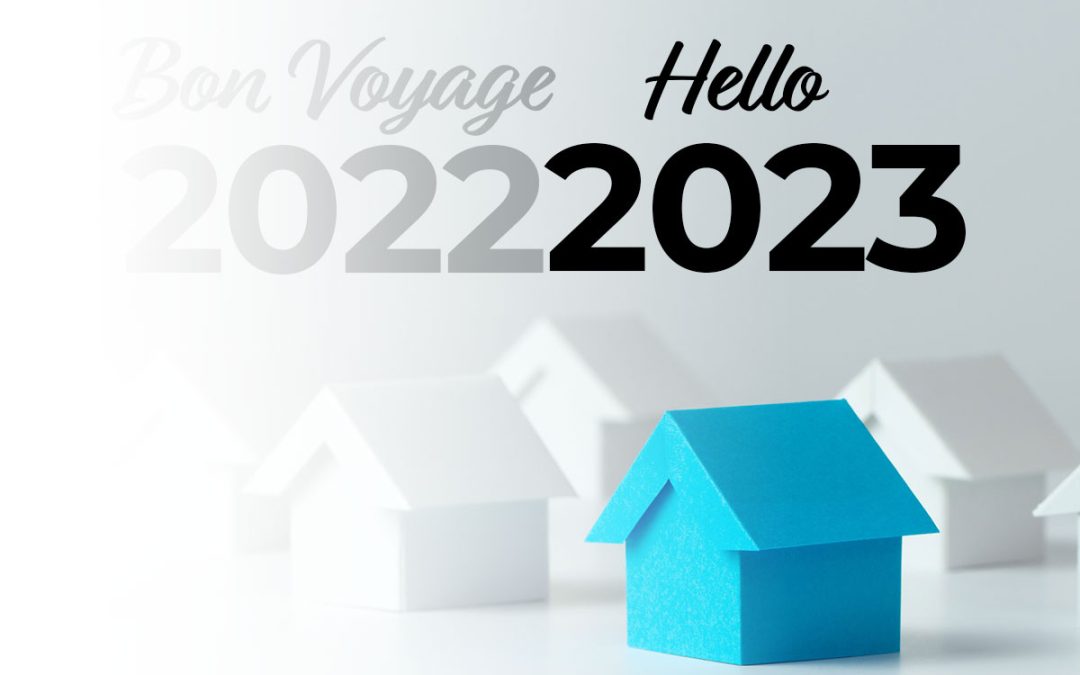What a ride it’s been in the 2020’s in real estate, we have seen record low rates, never before seen in mankind’s history. Record high price appreciation and home prices have shocked some, and made others more wealthy than perhaps even they could have hoped. In 2022, the Fed elected to turn off the music playing at the party, people were having too good of a time they thought. The last time there was a sudden move like this, it was the Global Financial Crisis. However, these two periods are extremely different and will play out very differently, I am going to argue.
In 2007, we had a banking crisis, now we have an inflation crisis and an overall cost of living crisis. Markets, vendors, and consumers are all confused. Money was pouring out of the sky and they had no place to spend it with the economy largely shut down in 2020 due to COVID-19, forbearance, moratoriums on evictions, and so on. Life was good for the consumer. Now with inflation or rising prices eating up more of their paycheck and companies in some industries laying off workers, the stage is set for recession. Some borrowers particularly affected by market changes are first time home buyers.
Although some lenders will reach outside of their typical quality in an effort to make the numbers work, we think First Time Home Buyers as borrowers themselves are going to be challenged to pull the triggers. With prices remaining high, a borrower with a credit score in the low 600s is likely faced with the decision to borrow money at 7-8% with high origination fees. We saw low credit scores doing FHA deals at 1.99% a few years ago. Now, take a $200K loan the an interest rate of 2%, per month that is $333 in interest. $500/month at 3%, $666 at 4%, $833 at 5%, $1000 at 6%, $1166 at 7%, and $1333 at 8%. Taxes as well are going up as sales prices remain high. So overall payments per month could go up at $1000 in just interest per month on a $200,000 loan.
There is the TINA effect as well (There Is No Alternative) as rent prices have exploded as well. People still need a place to live and there is likely not going to be as much building happening over the next few years to offset these price increases. I think this is going to cause cities to start difficult conversations regarding zoning. As prices go up, and wages cannot keep pace, people are forced to live with more people in a dwelling. You see this in cities like Hong Kong where individuals rent shelter where they cannot even stand up as an extreme example. Cities like Minneapolis did away with Single Family Zoning practices. That may start to happen in other municipalities as market forces demand changes from local governments.
Some cities may start to look more attractive than others. For example, as many employees work from home, energy prices rise, home price rise, interest rates rise, I think people will start to consider why do I live where I am living right now? If your life style consists of wake up, take your kids to school, work, go to the gym, take your kids to do some activities, eat, go home watch Netflix, why do you have to do that in high tax, high cost areas. Stress levels, for a lot people, go down when your overhead costs are reduced. Could cities like Johnson City, Tennessee; Birminham, Alabama; Cleveland, Ohio; or Ocala, Florida be places that are more of a draw than San Francisco, Austin, New York City, Chicago and so on. The pandemic showed us that Americans do vote with their feet in large numbers. Not everyone is beholden to an area anymore.
I think some of the trends that I see happening in 2023 are fewer transactions overall taking place, prices falling in most markets albeit not crashing (10-15%) correction in most markets. Some high flying markets like Los Angeles, San Francisco, Austin, Denver, and Phoenix falling by 20% off their peak prices due to interest rates. Markets like New York and Miami I believe will be resistant to downturns in large part due to low inventories and the prevalence of cash buyers in those markets. Rents will stay high. If you cannot buy, what do you do? You go back to Mom and Dad or you rent. Most people instead of buying will rent.
Strategies that will likely be employed in these market conditions. Most existing home buyers will not refinance their existing loans given they have locked in low interest rates on fixed term. They are in good position, but if some of those existing buyers need cash they will seek out second mortgages or HELOCs to tap equity and get liquid if they need it. It might be at 6-8% but that is a lot cheaper than a credit card.
I think investors have a great opportunity in 2023. Distress is going to start to be a theme. Investors that were working off the “refi ’til ya die” approach, that model is dead. They will need to dump those properties and/or negotiate a short sale. Foreclosure should remain fairly low, but that market will start to pickup into 2023 and 2024. I think the market of 2020-2022 it was a much easier market due to interest rates. Now, I think that there are absolutely great opportunities but investors need to be selective and not lock in on just one idea. Broaden your horizons and network with more people in the industry.
Geopolitically, my big prediction is kind of a long shot but here it is: the Trump tax cuts had included in it two items that really adversely affected the coastal elites. They limited mortgage interest deductions to 750K and then it capped SALT tax deductions. I think those two items at some point in 2023 are changed with the excuse used as “inflation”.
From our Black Tie Title family to your family, have a happy New Year and happy holiday season. We wish you and your families a prosperous 2023! We hope we are your choice to help you on your real estate transactions in 2023.

Want to schedule a call with us?
Complete the form below to request a callback.
